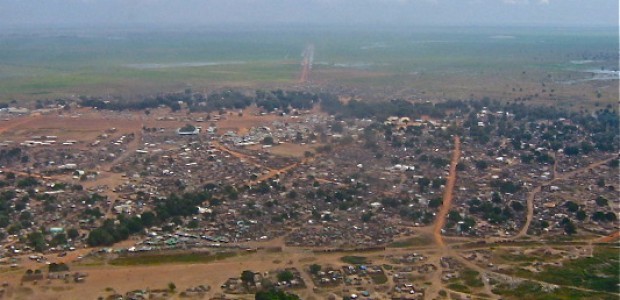Police in Northern Bahr el Ghazal State on Tuesday arrested 21 traditional leaders after rejecting a government decision annexing their areas to Aweil municipality, a community leader said.
Jiel Dhieu, leader of the Awiil community, told Radio Tamazuj on Wednesday that 21 chiefs from Maper Akot Aru and Auluic payams were arrested by the police after opposing a government plan to annex their areas to Aweil municipality.
“Our chiefs from Maper Akot Aru and Auluic were arrested because we refused to join Aweil municipality. Our payams are Auluic and Maper Akot Aru and our bomas are seven. The late Dr. John Garang de Mabior had approved them and the governor now said he will merge them with the Aweil municipality, but we rejected it,” Jiel explained.
However, Aweil Center County Commissioner Peter Natali said: “I did not receive any order annexing Auluic Payam in Aweil Centre to Aweil town. Maper Akot Aru was part of Aweil town and remains part of Aweil town, so the problem started now because the people of Maper Akot Aru want to be part of Aweil Centre County.”
For his part, State Police Spokesman Capt. Guot Guot Akol said they had arrested the traditional leaders after they staged “violent protests” against the newly appointed executive director in the area.
“I can confirm that the incident occurred on Tuesday in Maper Akot Aru, where chiefs staged violent protests against the newly appointed executive director. They went and assaulted the executive director in his office, so that’s why the police intervened and arrested them,” Akol explained.
Among the arrested chiefs are Akot Akot Dut, Wol Mayom Akook, Peter Lual Akol, Dut Bak Lual, Deng Madok Akot Aru, Garang Amei Lual, Malek Deng Lual, Aduol Yak Kelei and Bol Lual Dut.
Peter Diing Ngong, a civil society activist in Northern Bahr el Ghazal State, has called for the immediate release of the arrested chiefs so that the dispute is resolved amicably.
“As civil society activists, we want the chiefs to be released as soon as possible so that dialogue can start to avoid the conflict. So this is my appeal,” Peter concluded.
South Sudan’s constitution requires detainees to be produced before a court of law within 24 hours.




